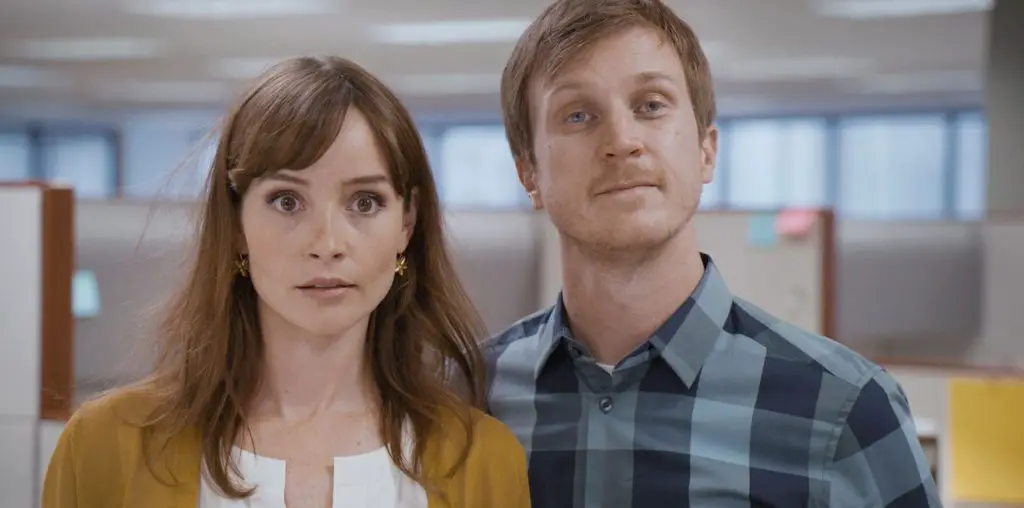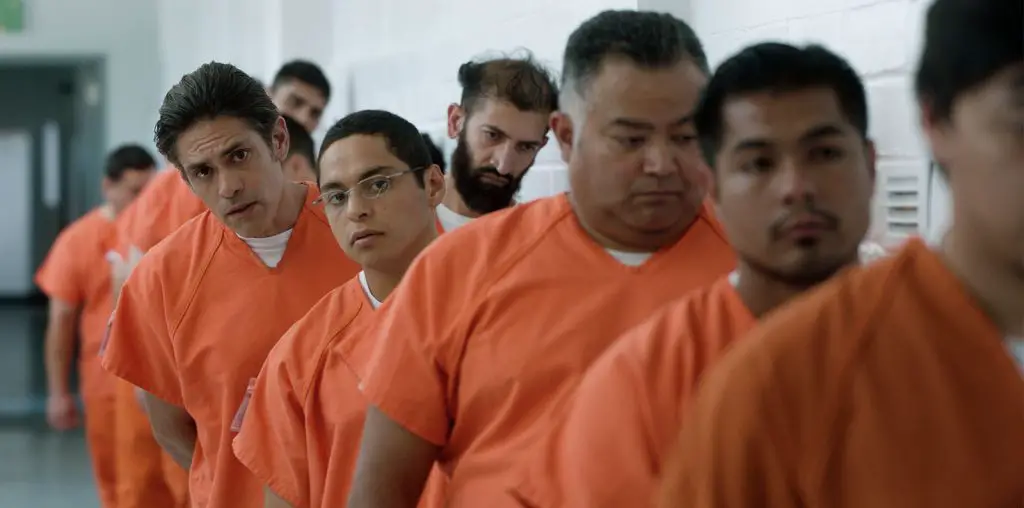
With its rainy streets and gloomy sky, the otherwise lovely city of Vancouver, British Columbia would’ve been the ideal setting for dark, existential horror films like “Jacob’s Ladder” and Open Your Eyes. However, when June and July start to roll around, the climate starts to change ever so slightly so you never know if you’re going to get the hot sun or the rain of death. It’s no wonder they call it Supernatural British Columbia, the perfect setting for a truly offbeat genre film. It’s a very appropriate setting for the new film The Butterfly Effect, a science-fiction thriller that almost defies description. Close your eyes and imagine Marty McFly meeting John Doe from “Seven” as they embark on a hellish time-travel journey that includes subjects like child abuse and prison rape. What the hell kind of film is this?
“It’s very much a “Back to the Future” type premise dealing with horrible childhood and present day traumas that include some really dark subjects,” says Eric Bress, the co-director and co-writer of the $13 Million New Line Cinema release. Bress’ partner is J. Mackye Gruber, and the two friends also collaborated on the script for Final Destination 2 which was also filmed in Vancouver, just a few months before The Butterfly Effect’s June filming schedule. Ashton Kutcher heads a cast that includes Amy Smart, Melora Walters, Elden Henson, William Lee Scott and Eric Stoltz. One of the film’s producers is J.C. Spink who co-produced The Ring which has proved to be the surprise smash horror hit of recent years.
The Butterfly Effect tells the story of a bright, handsome and seemingly normal young man, Evan Treborn, played by Kutcher(who also serves as an executive producer on the film)who’s spent his entire life trying to cope with repressed childhood memories, memories that were so horrifying that Evan forced himself to have blackouts to avoid thinking about or even remembering the horrific events. Anxious to finally recall his childhood memories, and to face his demons once and for all, Evan discovers a technique where he can leave his body and travel in the past which empowers him to be able to occupy his childhood body and alter history. But as we know, every change you make in the past, every ripple, has consequences, and Evan and the people close to him soon discover that every change Evan makes in the past has unexpected and horrifying consequences in the present.
“At the start of the film, Evan seems like he’s really cool, like he’s really straightened his life out,” says Kutcher. “He’s gone to college, he has a girlfriend, he’s very popular, but these repressed memories have always been eating at him. When Evan discovers that he can go back in time, he wants to go back and change the lives of his friends as well, but as it turns out, Evan’s friends’ childhoods were just as messed up as his was, if not more. He opens up a real can of worms when he starts going back to the past and starts changing things because, of course, everything is altered.”
The term “butterfly effect” refers to a real life chaos mathematics weather theory which states that all of the events in our lives, no matter how small or incidental, are connected with each other meaning that even seemingly inconsequential events can spread out and create global weather patterns, as described in the famous example of how the ripples made by a pebble tossed into the ocean can change the climate forever or how a butterfly flapping its wings near the Pacific Ocean might produce chain reaction events that cause hurricanes and tornadoes to form in the Atlantic Ocean, many years later. For Evan Treborn, the events he changes in the past have similar aftershocks in the present, and, by definition, the future.
“Ever since he was a little kid, Evan’s been unable to remember the most important things that happened in his life,” says Kutcher. “Then we start seeing flashes of his childhood like when his mother found him standing in the kitchen with a butcher knife in his hands, with Evan not remembering how he got there. There’s another flashback scene where you see Evan in kindergarten class and he finger-paints the words “Kill me before it’s too late.” Evan’s mother doesn’t know what to do with him because, as it turns out, Evan’s father had the same kind of blackouts for many years before he went totally insane. So, when Evan was a kid, his mother took him to this doctor who told Evan to start keeping a daily diary so he could remember his life. Everything’s going great in his life, until he starts reading the old journals again in college and the blackouts start to lift.”
The Butterfly Effect represents the directorial debut for the writing team of Bress and Gruber, a partnership that has transformed the two best friends into the hottest genre writers in Hollywood and while having two directors on a film is usually a recipe for disaster, Bress and Gruber maintain that it’s more a case of having two different pieces forming a perfect puzzle. “One director has a huge amount of tasks to handle, so why can’t two be better?” asks Bress. “We’ve split the directing job into two specific parts where I’ll be working mainly with the actors while Jonathan works on the visual aspects and the complex shot designs. We both have different strengths.” Bress and Gruber first teamed on the independent comedy film “Blunt,” a film they wrote and produced and which won the best comedy award at the New York Independent Film Festival. “We write all of this stuff together so why can’t we do everything together?” asks Gruber. “We know the exact vision we want in The Butterfly Effect and since we’re writing partners it’s like we share the same brain. We talk about everything before we shoot so there’s no surprises once we get on set. Dividing up the tasks makes for a better film product and The Butterfly Effect has been a great shoot.”
Given the fact that The Butterfly Effect deals with such explosive traumas such as child abuse and rape, it’s no surprise that The Butterfly Effect took six years to make it to the screen. Bress and Gruber’s original script was then entitled “Blackouts” and, right from the beginning, the writers knew it was going to be a tough sell. “The complex and painful nature of the story was a big obstacle for lots of people,” recalls Bress. “Things didn’t start to really move forward until we delivered the script for Final Destination 2 which gave us the momentum to make this film, albeit with a very low budget by studio standards.”
Get the rest of the interview in part two of THE BUTTERFLY EFFECT: BROKEN BUTTERFLY WINGS>>>

